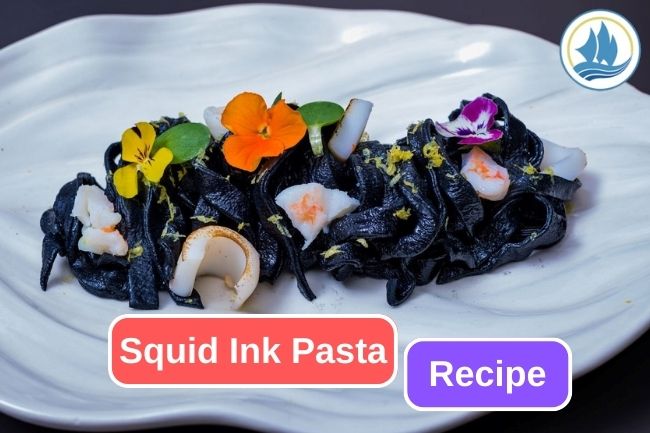Easy Squid Ink Pasta Recipe
By. Nevanda - 04 Apr 2023
kelolalaut.com - Squid ink is what gives this pasta its unique and defining black coloring. Squid ink pasta has a rich, briny flavor with the faint hint of sea saltiness, which makes it absolutely perfect for pairing with seafood. Popular in Mediterranean and Japan cuisine, it’s added to the dough of the pasta before cutting and drying.
Squid ink is a black liquid pigment produced by squid, cuttlefish, and octopus, to protect themselves from predators. Squid, cuttlefish ink and octopus ink can all be classified as “squid ink”, legally speaking, as they’re all close relatives.
We’re highlighting the umami flavor of the pasta with bright flavors, such as lemon, garlic, butter and parmesan. Here are squid ink pasta recipe according to seriouseats.com
Read also: How To Preserve Fish With Smoking Methods
Ingredients:
- 1/4 cup olive oil
- 1 pound medium shrimp, shells removed and deveined (tails optional)
- 12 medium scallops
- 3 garlic cloves, thinly sliced
- 1/2 teaspoon red pepper flakes
- Kosher salt and freshly ground black pepper
- 3/4 cup dry white wine, can subs with stock
- 1/3 cup ripe, chopped seeded tomato
- 1/2 cup chopped fresh parsley leaves
- 1/4 cup juice from 1 to 2 lemons
- 1 tablespoon unsalted butter
- 1 pound squid ink pasta
Read also: Here Is Crimson Snapper Characterictics
Directions:
- Bring a large pot of salted water to a boil.
- Heat oil in a heavy skillet over medium-high heat until lightly smoking. Add shrimp and sauté until opaque, about 1 minute each side. Remove to a plate.
- Reheat oil and cook the scallops until they too are opaque and lightly browned, 2 minutes each side. Remove scallops to plate with shrimp and add garlic to pan.
- Cook, stirring often, until golden, about 2 minutes. Add red pepper flakes, black pepper, salt, wine or stock, tomato, and parsley, and cook over high heat until reduced by half, 8 to 10 minutes.
- Add lemon juice and butter and return seafood to the skillet, mixing well. Keep warm.
- Cook pasta in the pot of salted water until it is al dente. Drain well, return to the pot along with the seafood. Toss well, and serve immediately.








